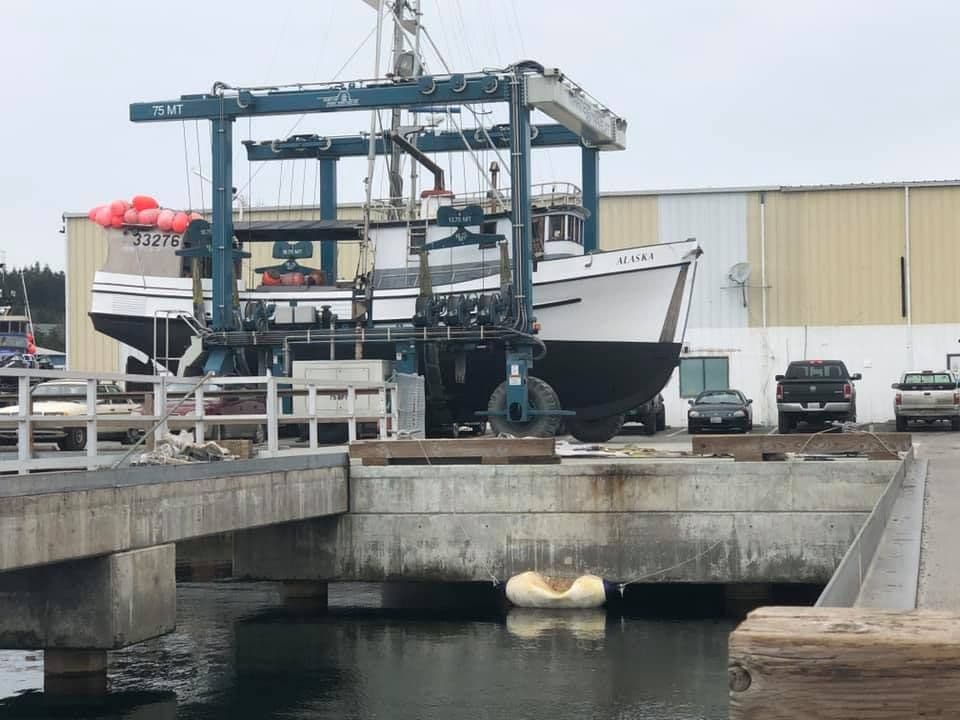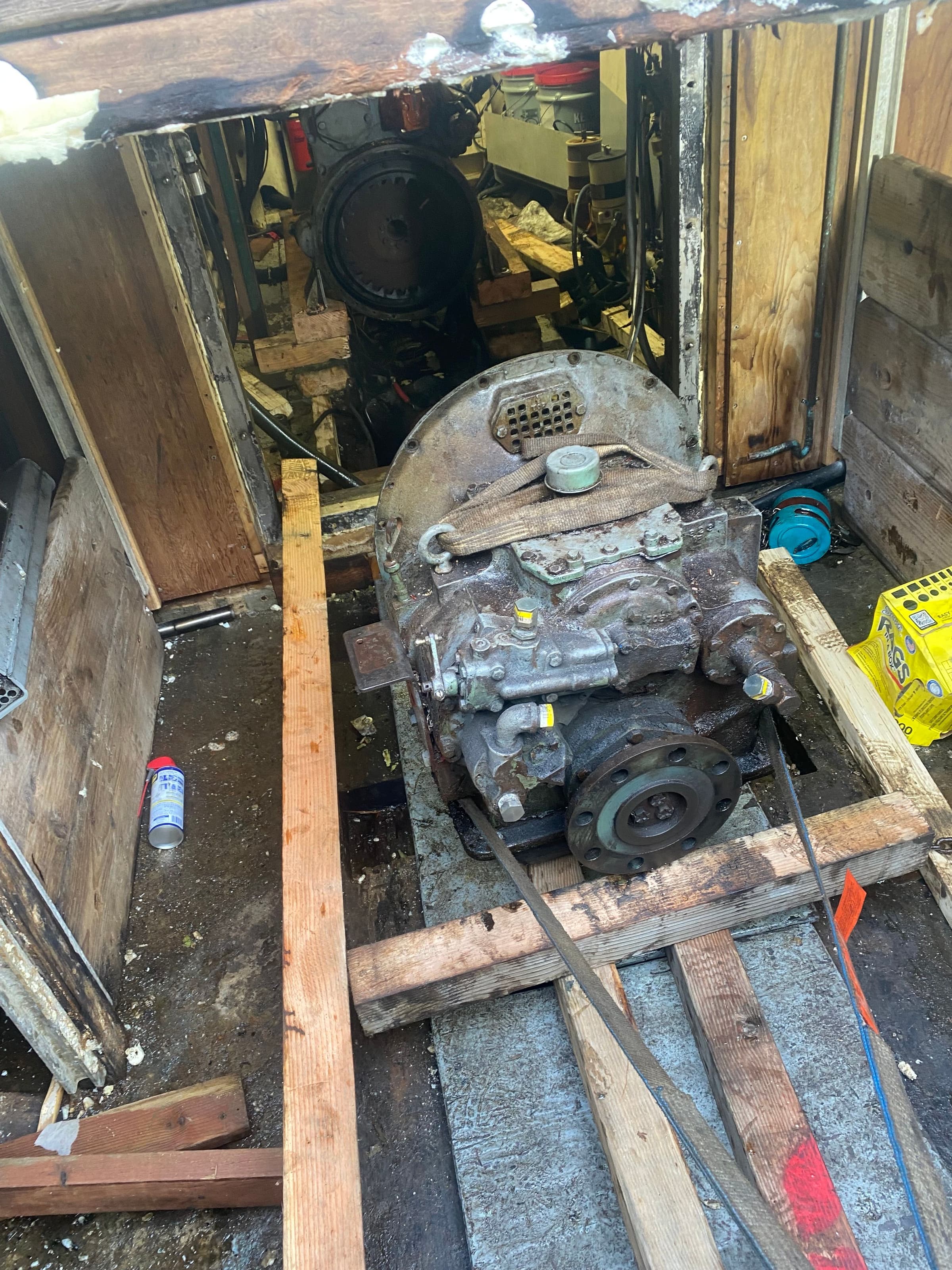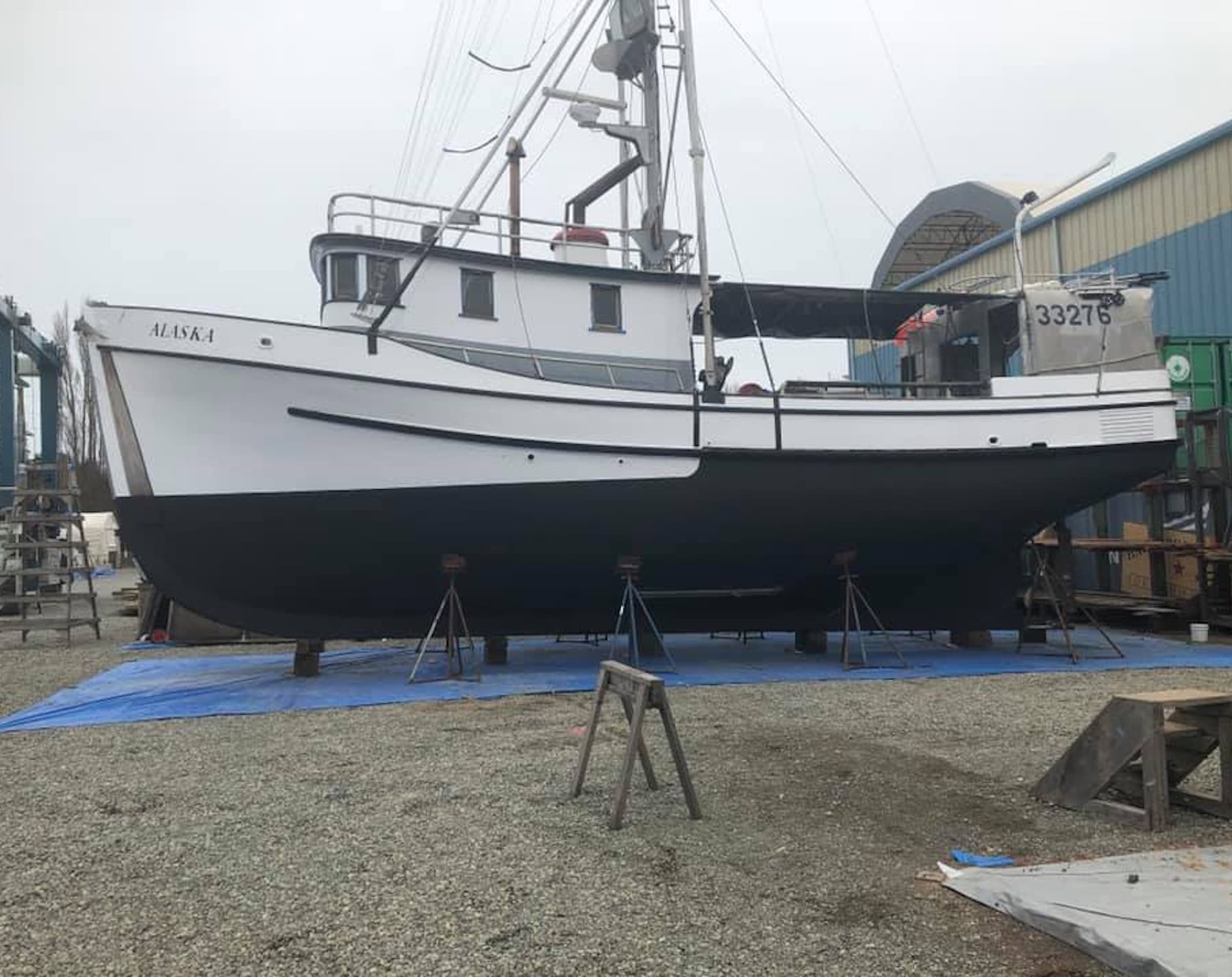Spring brings a sense of optimism to the Sitka fleet. Battling weather, tides, and the challenge of finding fish requires dedication, and with that comes the hope for a successful season. It's a time when getting your boat in top shape can make or break your season.

To make a decent living as a fisherman it’s better to diversify what fisheries you partake in. Right now many are busy fishing for spring king salmon and longlining for black cod and halibut. Others are chasing lingcod on the outer coast using a dinglebar. This fishery involves a dragging long lead bar close to the rocky ocean floor that lingcod inhabit. Behind the lead bar is a “train”, which is a line with a bunch of large grubs behind it. Using hydraulic winches, the dinglebar fishermen haul the 'train' to the surface — then pull in the often multiple lingcod by hand, one fish at a time. With large open mouths and weighing up to 40lbs a piece it’s no easy feat!
Despite their busy seasons, natural breaks occur due to weather or fishing area closures. These downtimes aren’t for relaxing — the longer days and warmer weather are perfect for tackling boat projects before the non-stop summer salmon season begins. Many trollers replace the lines used to haul in their fish, zinc and bottom paint their boats, and try to keep up with the myriad other projects. Much of the money made from spring fishing will go toward boat upkeep with the hope of hitting it big during the summer season.
One fleet member, Isaac Renolds, had a successful winter king salmon season last year but faced a setback recently when his engine blew. Towed into Sitka, he couldn’t fish this winter and had to replace his entire 2,000lb engine. Although not a fun project, a marine diesel engine typically lasts around 20,000 hours before needing replacement. He was fortunate he could complete this during the winter, as a summer breakdown would have severely impacted his main summer salmon trolling season. Isaac is currently crewing with another one of our fleet members, Brett Zaenglein, to cover the cost of his new engine. He’s feeling optimistic about getting his own boat back on the water and doing what he loves.
Fishing boats, unlike cars, can be quite old. Many of Sitka’s fiberglass boats date back to the 1970s, with wooden boats reaching back to the 1960s — or even earlier. Over the 50 plus years, systems have been replaced at various times. It takes years of repairs and hard-won experience for a captain to confidently fish in bad weather, knowing that a breakdown could be dangerous.

For instance, if your fuel tanks are fouled and the weather turns rough, sediment can get stirred up and clog your fuel filters, shutting down your engine. If you’ve got plenty of spares and can quickly diagnose the issue, you can swap the filters and get going before you're in real danger. Without those spares, you might have to rely on another fisherman to tow you to safety — assuming they’re nearby and the weather allows. A rescue in bad weather puts both boats at risk.
Preparation is crucial for becoming a “highliner” — a fisherman who consistently outperforms the fleet. There’s more to it than just catching fish. Skillfully maintaining and understanding your boat is a fundamental part of life on the water.
Outside the busy fishing fleet, Sitka is undergoing other big changes. Since cruise tourism slowed during COVID, visitor numbers have skyrocketed. Before COVID, the busiest season saw 280,000 visitors; in 2024, it was just under 600,000. This surge has transformed Sitka’s economy, leading to new businesses, restaurants, shops, and tour operators expanding to meet demand. As Sitka grows as a travel destination, the question arises: how much growth is beneficial? While Sitka's charm is undeniable, there’s concern that too many tourists could diminish it. A vote on an initiative this spring will decide whether to limit cruise tourism or let it grow uninhibited. Sitkans value tourism as part of their economy, but to what extent will be determined soon. To learn more, check out the film "Cruise Boom" by our friend Ellen Frankenstein.


